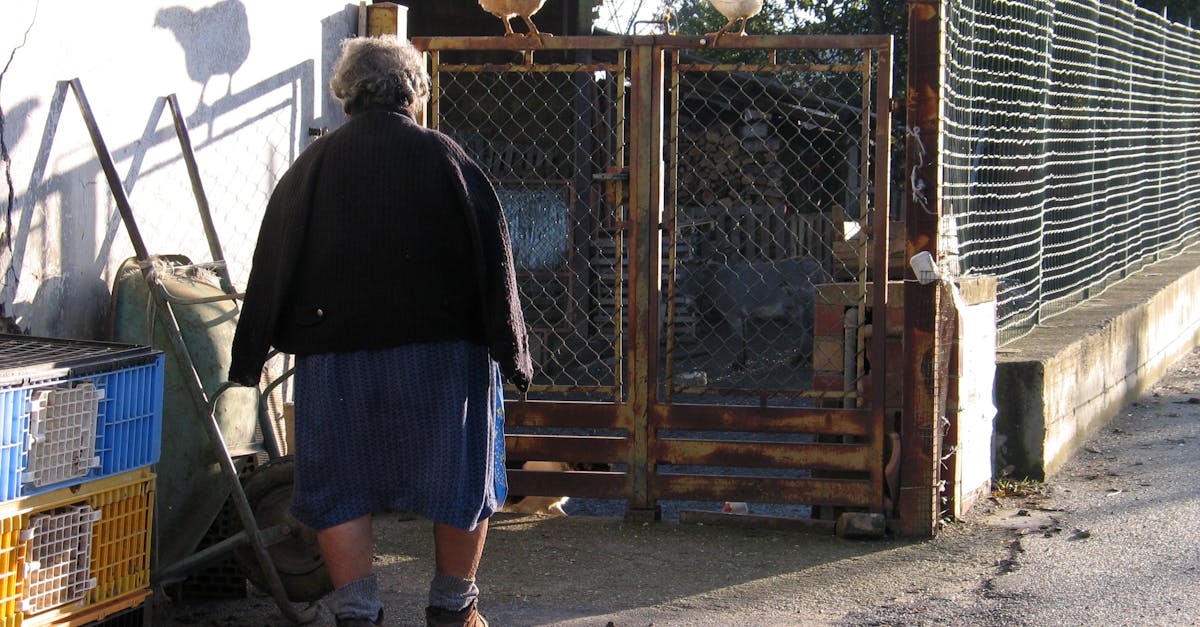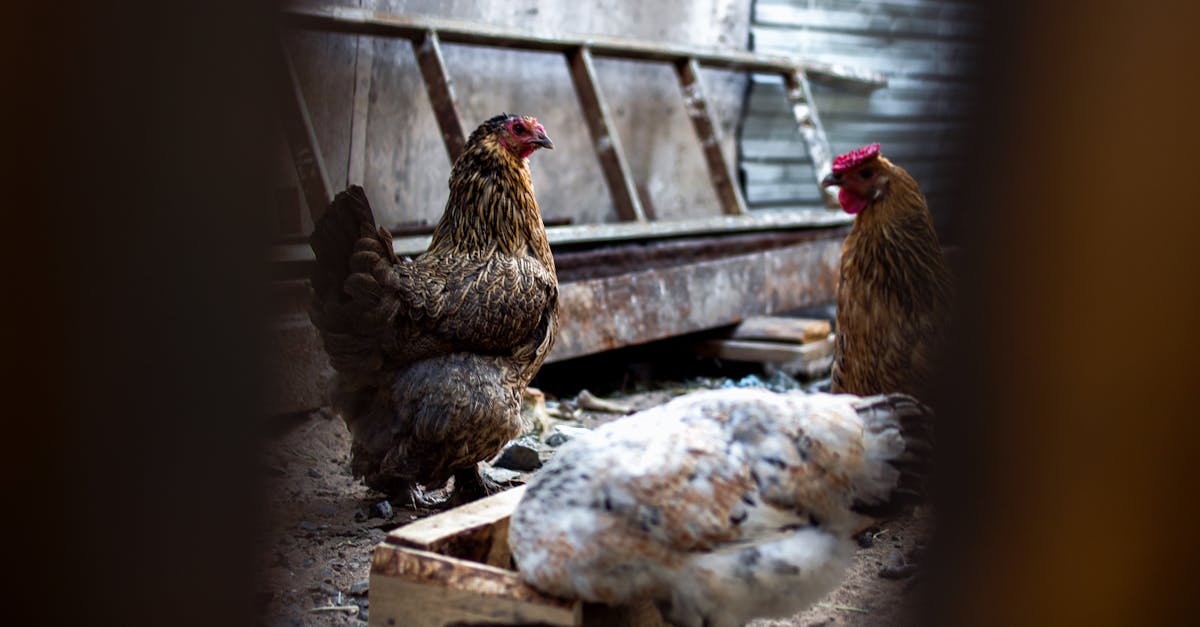Safeguarding Your Flock: The Importance of Predator Protection 🐔
Raising chickens can be a rewarding experience, whether for eggs, meat, or simply as friendly backyard companions. However, one of the biggest challenges chicken owners face is protecting their flock from predators. In many areas, the threat is real and tangible with animals such as raccoons, foxes, hawks, and even neighborhood dogs always on the prowl.
Protecting your chickens from predators not only ensures their safety but also helps maintain productivity and reduces the emotional toll of losing birds. This post delves into essential measures that must be taken to safeguard your flock, ensuring their well-being and security.
Understanding the Threat: Common Predators and Their Behaviors
Raccoons
Raccoons are among the most common predators of backyard chickens. They are nocturnal, highly intelligent, and have dexterous hands, allowing them to open simple latches. They often kill by dragging birds through the fencing, leading to distressing outcomes.
Foxes and Coyotes
Foxes and coyotes hunt both day and night, making them a persistent threat. Foxes are known for their cunning nature and can jump high fences, while coyotes are strong enough to breach poorly constructed coops.
Birds of Prey
Hawks, eagles, and owls use their acute vision to spot chickens from great distances. Hawks and eagles hunt during the day, diving to snatch chickens with their talons, while owls typically hunt at night.
Domestic Dogs
While not considered traditional predators, local dogs can pose a threat to chickens. Dogs have a natural chase instinct that can lead to unintended harm, stress, or even death for the chickens.
Other Ground Predators
Skunks, opossums, and weasels are also threats, especially to eggs and chicks. They generally enter coops through small gaps and are nocturnal hunters.
Understanding the behavior and characteristics of these predators is the first step in devising effective protection strategies.
Building the Fortress: Designing a Predator-Proof Coop
Coop Design: Key Considerations
-
Material Choice: Use sturdy materials for coop construction. Opt for hardware cloth instead of chicken wire, as the latter is too flimsy to deter many predators.
-
Secure Doors and Windows: Ensure all access points are securely latched with predator-proof locks. Consider double-locking systems for enhanced security.
-
Elevate the Coop: Elevating the coop can prevent burrowing predators from gaining access. Ensure there’s no space for animals to dig underneath.
Reinforcing the Run
-
Roof Coverage: Cover the run with solid roofing or strong wire mesh to prevent aerial attacks from hawks and owls.
-
Buried Fencing: Extend fencing material at least 12 inches underground to deter digging predators like foxes and coyotes.
-
Electric Fencing: Adding an electric fence can provide an extra layer of security, as it deters larger predators effectively.
| Predator | Peak Activity Time | Recommended Defense |
|---|---|---|
| Raccoons | Nighttime | Secure latches, hardware cloth |
| Foxes and Coyotes | Day and Night | Tall, buried fencing, electric fencing |
| Birds of Prey | Day and Night | Covered run, netting |
| Domestic Dogs | Day | Secure fencing, supervision |
| Ground Predators | Nighttime | Elevated coop, secure entrance points |
Guarding the Ground: Additional Yard Security Measures
Motion Sensor Lights and Alarms
Installing motion-activated lights and alarms can startle nocturnal predators, making them think twice before approaching the coop. These devices are particularly useful for deterring raccoons and foxes.
Guard Animals
Consider introducing guard animals like dogs or geese, which can protect the flock. Livestock guardian dogs (LGDs) are trained to fend off predators and can be an effective long-term solution for larger properties. Geese, on the other hand, are territorial and alert their owners to potential threats with loud honking.
Perimeter Fencing
Constructing a solid perimeter fence around your property is another vital measure. It should be tall enough to discourage jumping predators and buried underground to prevent digging creatures from gaining entry.
Mindful Management: Best Practices for Daily Chicken Care
Regular Inspections and Maintenance
Frequent inspections of the coop and run can catch potential vulnerabilities before predators exploit them. Look for holes, loose wires, and weak spots, and ensure they are promptly repaired. Keeping maintenance logs can help manage and schedule these checks effectively.
Timely Lock-Ups
Always ensure the flock is safely locked in the coop before nightfall. Automated coop doors can be a useful investment, closing at dusk and opening at dawn, ensuring no one forgets to secure the flock.
Cleanliness and Food Storage
Food left out can attract predators. Secure feed in metal containers with tight lids and clean up any scattered food. Regular cleaning of the coop also helps deter predators by eliminating scents that might attract them.
Advanced Solutions: Tech-Enhanced Security
Surveillance Cameras
Installing surveillance cameras provides the dual benefit of deterring predators and allowing you to monitor your flock in real-time. There are several weatherproof, motion-activated cameras designed specifically for outdoor use that can be connected to smartphones for easy monitoring.
Automated Systems
Various automated systems, from lighting to feeders, can be integrated into your coop setup. These systems not only ensure regular care but can also be programmed to simulate human presence, further deterring predators.
The Bigger Picture: Community and Legal Measures
Community Vigilance
Partnerships with neighbors who also keep chickens or have an interest in wildlife can foster a network of vigilance. Sharing information about predator activity in the area helps everyone stay alert and proactive.
Legal Considerations
Understanding local regulations regarding predator control is crucial. In some areas, trapping or relocating certain predators may require permits. Always be sure to follow legal guidelines to avoid fines and ensure the ethical treatment of wildlife.
Taking Action: Steps to Protect Your Flock
Ensuring the safety of your chickens is an ongoing commitment that involves several proactive measures. Here’s a quick checklist for immediate implementation:
- Assess Current Security: Inspect and identify weaknesses in your current coop and run setup.
- Upgrade as Needed: Implement structural improvements such as hardware cloth, buried fencing, or electric fencing.
- Invest in Tech: Consider motion sensor lights, alarms, surveillance cameras, and automated systems.
- Establish Routines: Regularly inspect and maintain the coop, lock up birds at dusk, and secure food supplies.
- Stay Informed: Partner with neighbors and stay updated on predator activity and legal regulations.
By taking these steps, you can significantly reduce the risk of predator attacks and ensure a safe and thriving environment for your chickens.
Ensuring Chicken Safety: A Final Thought
Protecting your backyard chickens from predators requires a multi-faceted approach that combines effective coop design, yard security, and vigilant management practices. With proper planning and implementation of the measures outlined in this post, chicken owners can confidently safeguard their flocks, ensuring their birds thrive in a secure and happy environment.
Taking action today means fewer losses, less stress, and more enjoyment from raising chickens. Remember, a well-protected flock is a productive and happy flock! 🐓🥚
For more information on chicken protection and for detailed guides on building predator-proof coops, visit Poultry Keeper, a valuable resource for all chicken owners.
[Have additional tips or questions? Share your experiences below! ⬇️]













